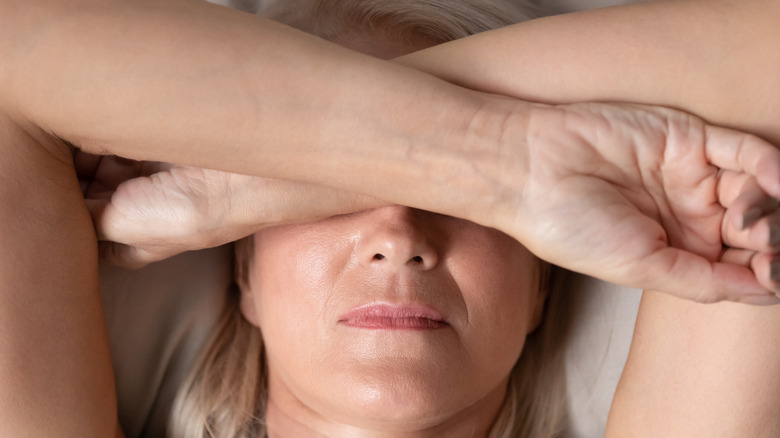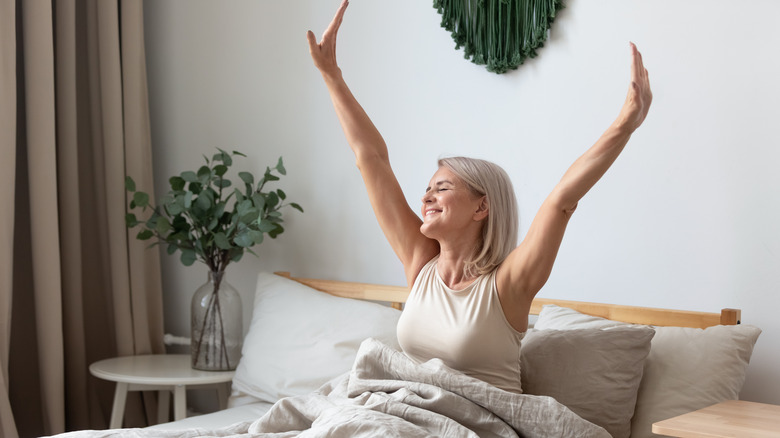This Is How Sleep Changes With Age
Most of us think about skin changes and metabolism changes (or lack thereof) when we think of aging. However, the reality is that aging affects far more than just our physical appearance. It affects most, if not all, areas of our life. An often neglected example of its effects is the area of sleep. For example, even if you have been a night owl your entire life, there is a good chance that your sleep schedule will shift as you get older, causing you to wake up earlier. You may also find it more difficult to fall asleep and stay asleep, according to the U.S. National Library of Medicine. In general, older people spend less time in deep sleep, and due to sleeping difficulties, they may spend less time sleeping overall.
According to Sleep Medicine Clinics, people are more likely to experience sleep changes with age if they have medical conditions or experience significant changes in their lifestyle, environment, and social engagement.
This is how to get quality sleep as you age
Sleep deficiency doesn't just put you in a lousy mood. It could hinder your performance at work, lead to life-threatening accidents or injuries, and increase your risk of many chronic health problems — both mental and physical (per National Institutes of Health).
The U.S. National Library of Medicine recommends taking sleep medicine only as necessary and as instructed by a doctor to combat sleep deficiency. There are many natural alternatives that could help get your sleep back on track. For example, exercising and avoiding naps during the day could help you sleep better at night. You may also want to avoid watching television or using a computer in your bedroom. Also, try avoiding using your bed for anything aside from sleep and sex. Keep in mind that tobacco can also interfere with sleep.
More practices that could help increase your sleep comfort include going to sleep around the same time each night and engaging in relaxing activities to avoid overstimulation before bed. When it comes to a bedtime snack, try to avoid stimulants such as caffeine for at least a few hours before bed. Instead, indulge in a light snack such as warm milk.


